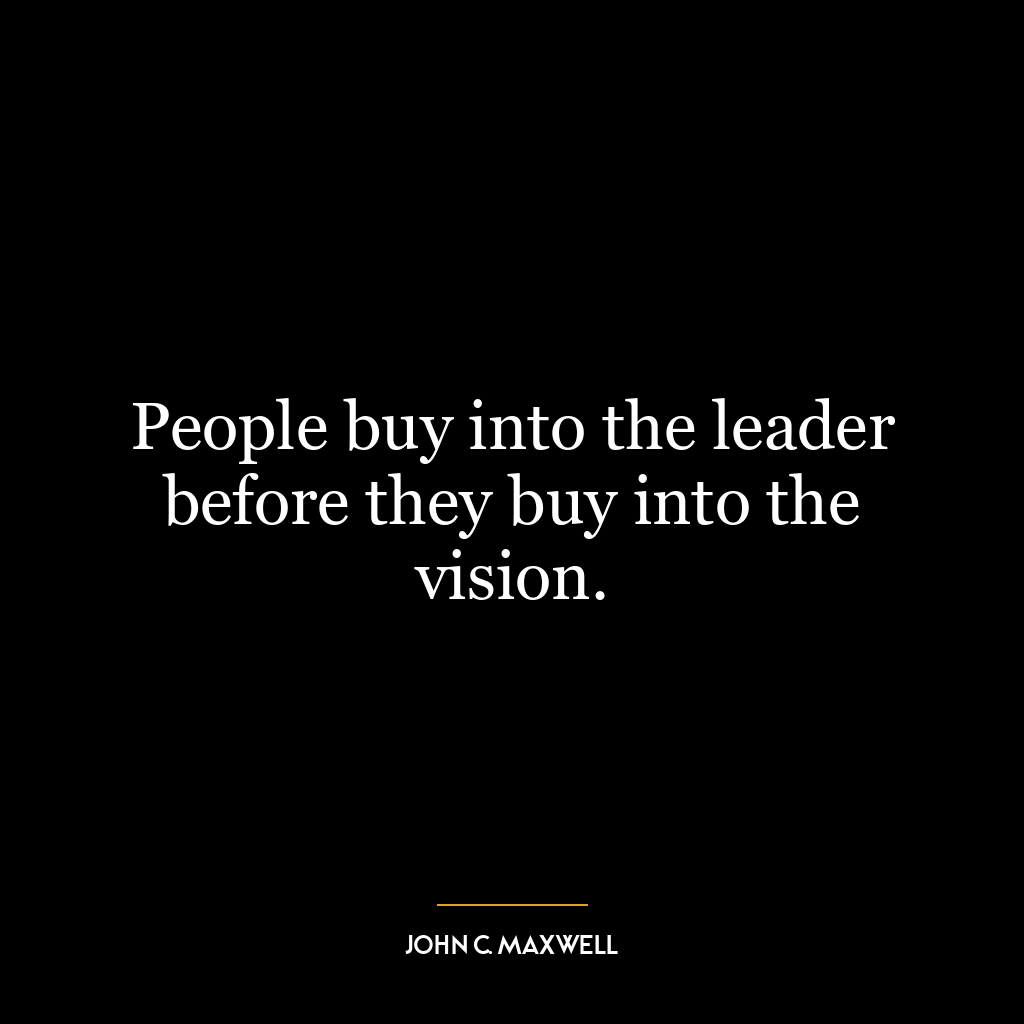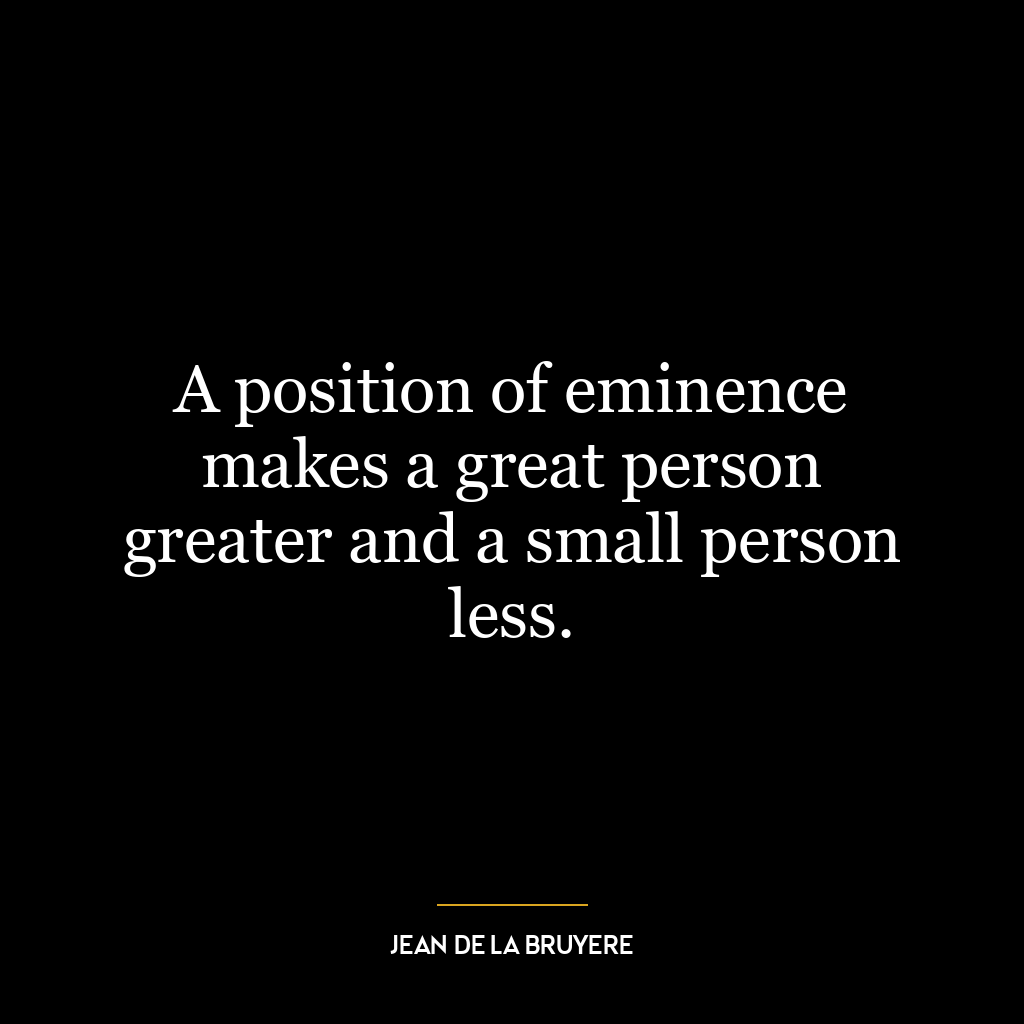This quote essentially means that people need to believe in, trust, and respect the leader before they can fully commit to the vision or goal that the leader is promoting. It speaks to the significance of leadership credibility, charisma, and capability in inspiring followership and motivating people towards a shared objective.
In essence, the vision or goal could be the most exciting, innovative, or beneficial, but if the leader promoting it isn’t trusted or respected, people are less likely to buy into it. This could be because the leader’s character and actions directly influence people’s perceptions of the vision’s feasibility and worthiness. If the leader is seen as unreliable, dishonest, or incompetent, the vision they’re promoting may also be perceived in the same light.
In today’s world, this idea is especially relevant in various contexts such as politics, business, and even personal relationships. For instance, in politics, people vote for leaders who they believe can effectively enact their vision for the country. If the leader lacks credibility, even the most appealing political agenda may fail to gain support.
In a business context, employees are more likely to strive for a company’s vision if they trust and respect their leaders. A leader who demonstrates integrity, competence, and empathy can inspire employees to commit to the company’s goals, leading to increased productivity and success.
In terms of personal development, this quote underscores the importance of building trust and demonstrating leadership qualities in all aspects of life. Whether you’re leading a team project, managing a household, or mentoring a friend, people are more likely to follow your guidance and advice if they respect and trust you.
Therefore, the quote suggests that to effectively promote a vision or goal, one must first focus on becoming a leader who is worthy of people’s trust and respect. This involves demonstrating qualities such as honesty, reliability, competence, and empathy.















